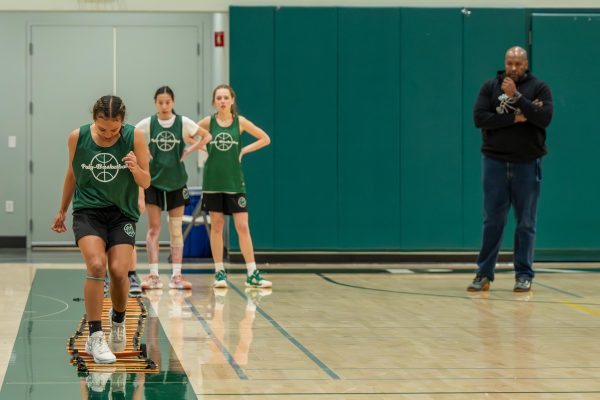“Prestigious” colleges not always the best option
As the deadline for college applications quickly approaches, seniors frantically type away on their computers, each trying to stand out to the admission officers at various school who read thousands of essays each year. Though many students that apply to college have been researching for months, other students choose schools solely based on prestige as opposed to fit.
With acceptance rates to top-tier schools often lower than 10 percent, students are competing with 30,000 or more students for less than 3,000 slots. As if it couldn’t get worse for those aspiring to get into these schools, Ivy League schools especially are becoming increasingly more selective, decreasing their acceptance rates bit by bit each year.
Many high schoolers have their hearts set on the perfect dream school before they enter high school, and some even before middle school. As a result, students have started participating in extracurriculars in hopes to please admission officers instead of actually being interested in the activity. Today’s high schoolers are under more stress than ever because of pressure to live up to what their peers achieve. Those who go through high school without tutoring help or being a club officer often have an unfair disadvantage. Thus, acceptance to these brand named colleges are not based on interest in learning, but are instead on which families are willing to invest money for college counselors.
The reality is that there are hundreds of private as well as public colleges that the majority of families have never heard of. As much as brand name colleges may seem glorious, students who especially need extra personal help usually suffer from being pushed into large prestigious colleges.
Palo Alto High School graduate Francis Ge (‘13) is a freshman at Swarthmore College, a liberal arts college located just outside of Philadelphia. Unlike most students, instead of having a brand name college as her top choice, Ge was determined to go to Swarthmore College.
“Swarthmore has the friendliest, most genuinely decent people out of all the colleges that I visited,” Ge said. “Everyone is super smart and hardworking and the professors are here because they really do want to teach us all sorts of cool stuff. A bigger school wouldn’t have this type of community or this much attention to give to each student.”
Students need to understand that there is more to a college than just the name.
For example, those who attend smaller private colleges often get the advantage of getting to know their peers more as a result of reduced class sizes. These small classes also allow students to get more individual attention from their professors. Getting this type of attention usually encourages students to seek help when needed. Having close bonds with the professor can also help people find research opportunities.
It is true that attending a top college such as Stanford University, which is known all over the world, will increase a student’s chance of being successful compared to one who attends Wright State University in Dayton Ohio. But when one applies for jobs, employment managers look for more important aspects than the college attended.
For example, according to their website, Google hires based on leadership skills and interest. The site even says that: “We’re less concerned about grades and transcripts and more interested in how you think.”
Ge agrees with Google’s philosophy and made the choice to attend Swarthmore College.
“The name brand isn’t that important if you know you’ll get a good, quality education and make friends with awesome people,” Ge said.
A common misconception is that only the top 20 schools will always have award-winning programs in all the different fields, but this is not always the case. With over 4,000 colleges and universities in the United States alone, it is extremely difficult for any single university to maintain a high rank in every single subject.
For instance, those eager to be successful in the fine arts field will often have the more impressive colleges at the top of their list, but few will consider applying to Rhode Island School of Design, which ranks first in the nation for best fine arts programs, according to CollegeAtlas.org. In the fine arts, Rhode Island School of Design surpasses Yale University (4th in the nation), and Stanford University (45th).
Each school often offers special programs that cannot be found anywhere else. Seniors need to take the time to research and choose schools based on how they will thrive in a particular school’s environment and not just on the name of a certain college.
Your donation will support the student journalists of Palo Alto High School's newspaper







